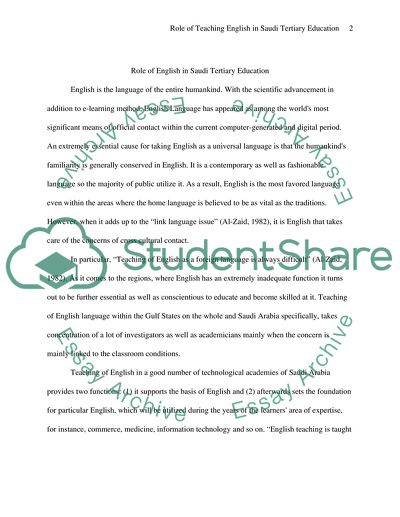Cite this document
(Role of Teaching English in Saudi Tertiary Education Coursework, n.d.)
Role of Teaching English in Saudi Tertiary Education Coursework. Retrieved from https://studentshare.org/english/1758715-the-role-of-english-in-saudi-tertiary-education-saudi-saudi-arabia
Role of Teaching English in Saudi Tertiary Education Coursework. Retrieved from https://studentshare.org/english/1758715-the-role-of-english-in-saudi-tertiary-education-saudi-saudi-arabia
(Role of Teaching English in Saudi Tertiary Education Coursework)
Role of Teaching English in Saudi Tertiary Education Coursework. https://studentshare.org/english/1758715-the-role-of-english-in-saudi-tertiary-education-saudi-saudi-arabia.
Role of Teaching English in Saudi Tertiary Education Coursework. https://studentshare.org/english/1758715-the-role-of-english-in-saudi-tertiary-education-saudi-saudi-arabia.
“Role of Teaching English in Saudi Tertiary Education Coursework”, n.d. https://studentshare.org/english/1758715-the-role-of-english-in-saudi-tertiary-education-saudi-saudi-arabia.


